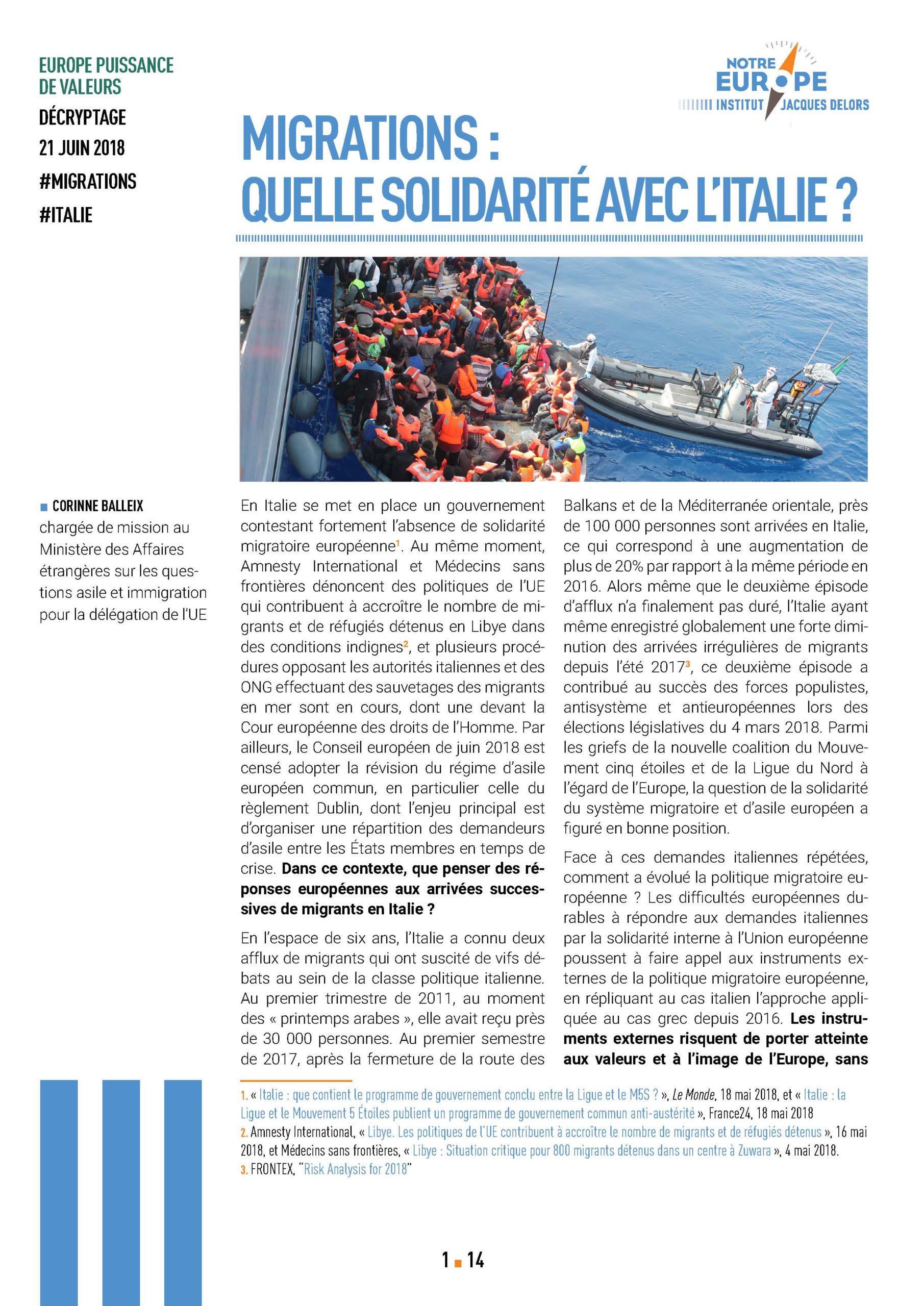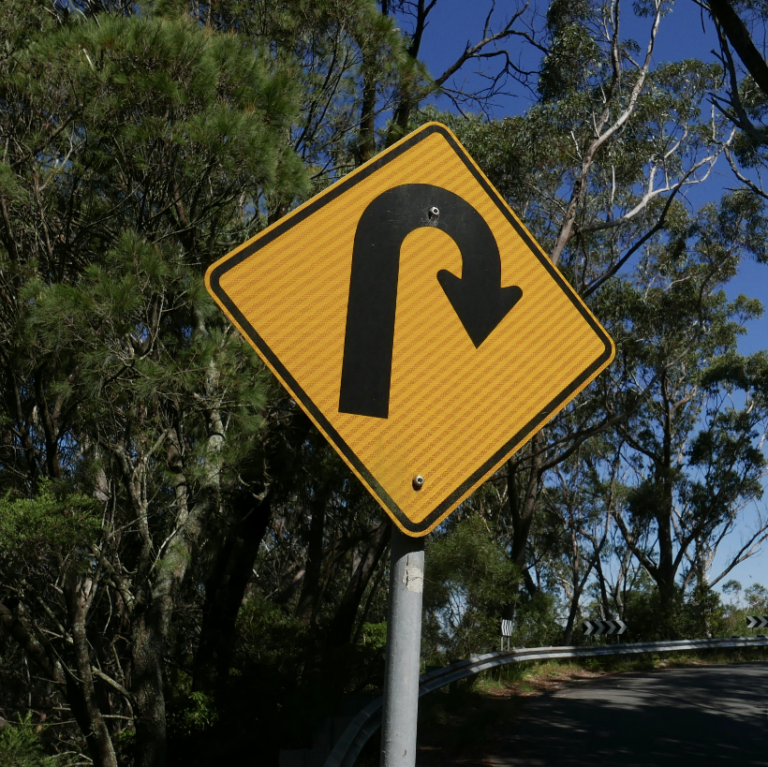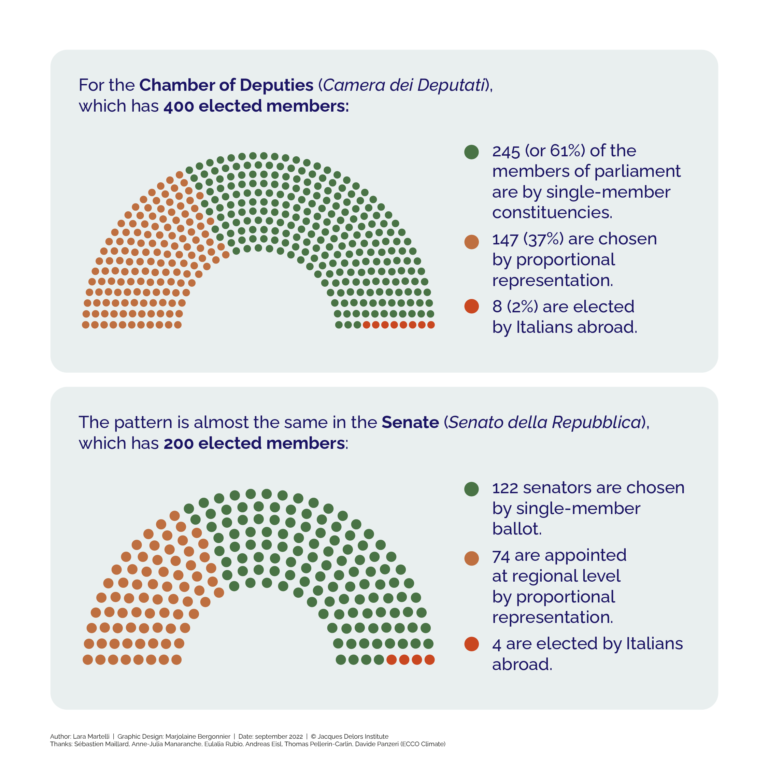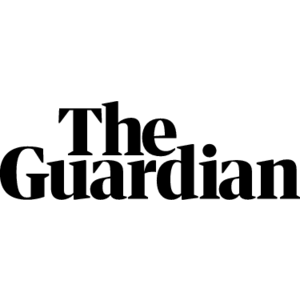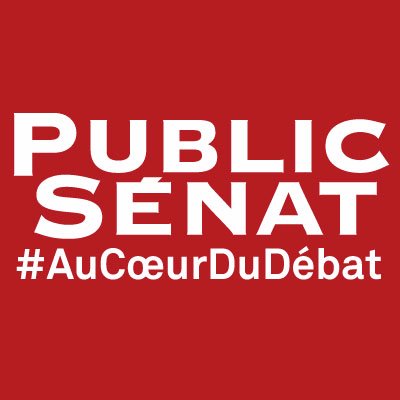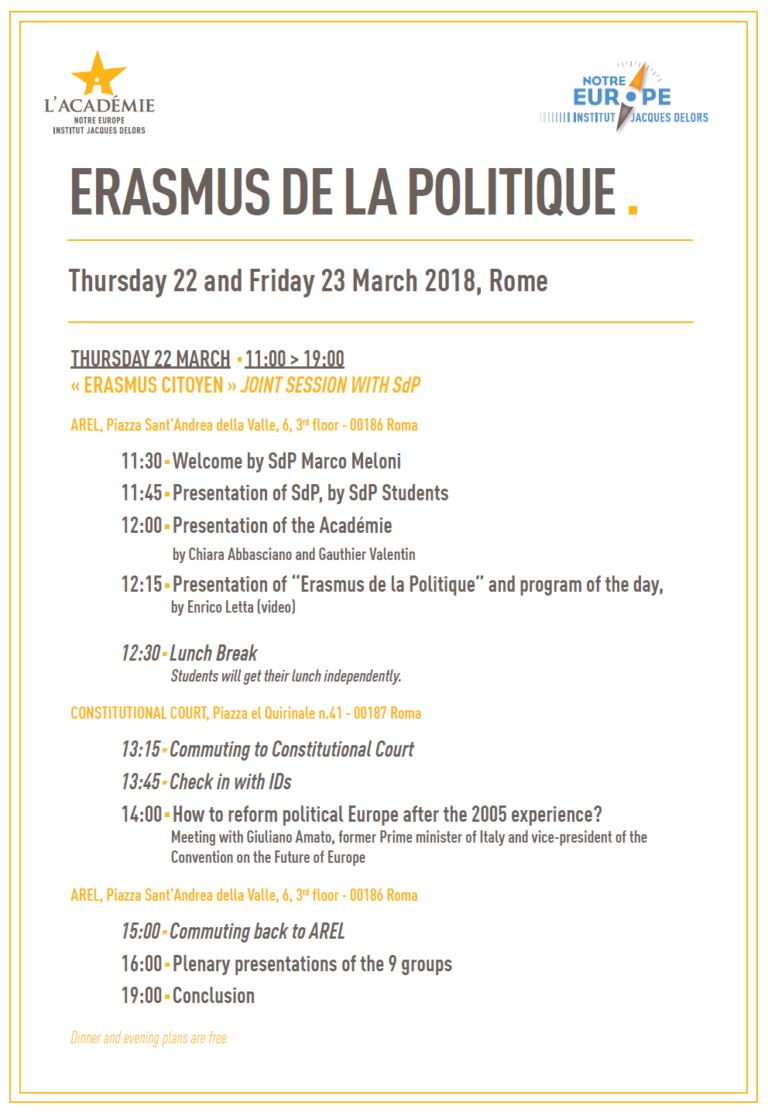Brief
Migrations: what solidarity with Italy?
In Italy, a government strongly disputing the lack of European migratory solidarity is taking shape. At the same time, NGOs denounce EU policies that help to increase the number of migrants and refugees detained in Libya in unworthy conditions, and the European Council of June 2018 is expected to adopt the revision of the European common asylum system. In this context, what about European responses to the successive arrivals of migrants in Italy?
In six years, Italy has experienced two influxes of migrants that have sparked lively debate within the Italian political class. At the beginning of 2011, at the time of the “Arab Springs”, it had received nearly 30,000 people. In the first half of 2017, after the closure of the Balkans and the Eastern Mediterranean, almost 100 000 people arrived in Italy, which represents an increase of more than 20% compared to the same period in 2016. Even though the second influx episode did not last long, with Italy having even recorded a sharp drop in irregular migrant arrivals overall since the summer of 2017, this second episode contributed to the success of the populist, anti-system and anti-european political parties in the parliamentary elections of 4 March 2018. Among the complaints of the new coalition of the Five-Star Movement and the Northern League towards Europe, the question of solidarity of the European migration and asylum system has figured in a good position.
Faced with these repeated Italian requests, Corinne Balleix analyzes the way in which European migration policy has evolved.
Only available in French
SUR LE MÊME THÈME
ON THE SAME THEME
PUBLICATIONS
The hasty return of Syrian refugees would not serve European interests

[FR] Migration: A look back at the February 9 European Council

Italy in Europe

MÉDIAS
MEDIAS
Meloni tells EU it cannot rely on US amid fears of Trump hit to bloc’s economy

What happens if Italy and France’s right-wing firebrands unite?

« Top jobs » de l’UE : la candidature d’Ursula von der Leyen à la tête de la Commission validée, malgré les tensions politiques avec l’Italie

ÉVÉNEMENTS
EVENTS
The EU’s response to Ukrainian refugees three months on

Académie Notre Europe | “Europe of migration” session [FR]

Académie Notre Europe : “Europe of migration” session [FR]

Euroquestions | Ukrainian refugees: hosting in Europe and impact on European migration policy? [FR]

EU-African Union Summit: a renewed partnership on migration and mobility? [ENG]

Migration, asylum, mobility and integration in Europe: inseparable common values | Presentation of the report published in December 2021 [FR]

Conference | Integration in Europe : Oxalá, Hopelijk, avec un peu de chance… | Perspectives from Belgium, France and Portugal [FR]

EU migration and asylum policy: a fresh start?

EU migration and asylum policy: a fresh start?

Webinaire | Nouveau pacte pour la migration : la Commission peut-elle reprendre la main sur le dossier migratoire ?

Webinaire | Nouveau pacte pour la migration : la Commission peut-elle reprendre la main sur le dossier migratoire ?

Euroquestions | Relance et puissance : mots d’ordre de la rentrée européenne

Des réponses européennes
à l’asile et aux migrations

Paris, 17 May 2019 – Académie Notre Europe : Europe and migrations

Paris, 16 April 2019 – Think migration and development together

Paris, 12 February 2019 – Eurociné: Screening-debate of the movie DJAM

Brussels, 28 January 2019 – Presentation of the Jacques Delors Institute’s report on migrations

Pantin, 6 October 2018 – Can the European Union better manage the migration flow?

Namur, 21 September 2018 – Migration policy and EU: which policy for Common good?

Erasmus of Politics – Strasbourg cursus of the Académie Notre Europe trip to Rome

Paris, 8 February 2018 – Eurociné: “School of Babel”










